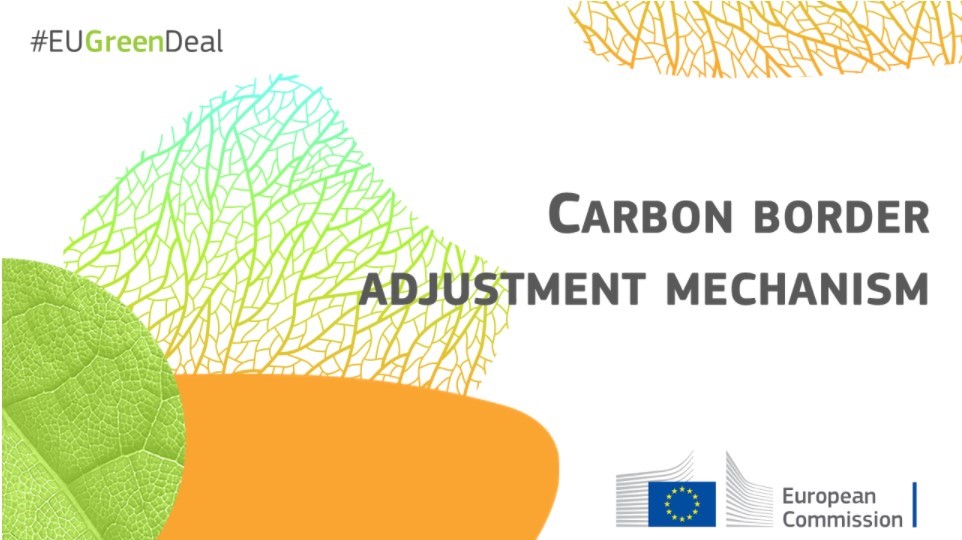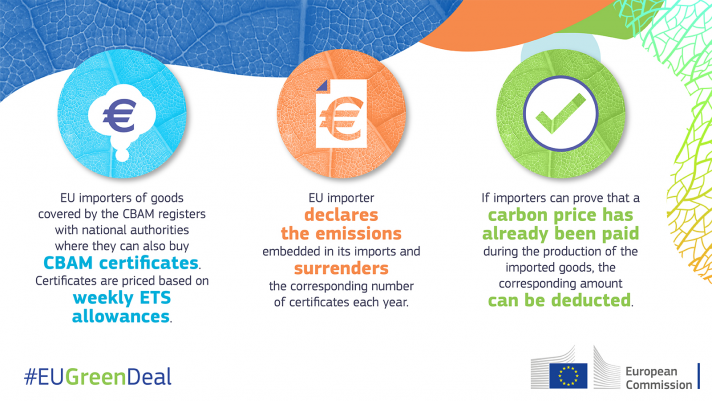On 17th August 2023, the European Commission published the CBAM Implementation Regulation with its Annexes as well as guidance for importers and companies outside the EU. The package is now ready and industry can start preparing for the ambitious challenges.
Ferronickel and NPI importers to the EU: get ready for the EU Carbon Border Adjustment Mechanism and its data collection and submission requirements

After several years of negotiation between EU institutions, the EU Carbon Border Adjustment Mechanism (CBAM) Regulation was adopted in 2023.

CBAM and the creation of a level playing field
The overall aim of CBAM is to create a level playing field for EU energy intensive industries and ensure the effectiveness of EU climate policy. CBAM is intended to prevent production being allocated to areas outside the EU, which would potentially lead to higher carbon emissions (“carbon leakage”).
Importers will have to measure and report their product’s carbon footprint and purchase certificates for each ton of greenhouse gases emitted during production. At the same time, there will be a phasing-out of the existing carbon leakage measures for those industries in the EU. These measures comprise the access to free carbon allowances for direct emissions as well as the potential access to state aid for indirect emission costs related to increased electricity prices.
Focus on six most carbon intensive industry sectors
CBAM focuses - for the time being - on six main products that account for roughly 50% of all industrial carbon emissions in the EU: cement, fertilizers, aluminium, hydrogen, steel and electricity. They are seen as a test case. Nonferrous metals such as copper, zinc or nickel are likely to be added in a later stage when the scope of CBAM will be extended to the wider range of more than 150 industry sectors that currently fall into the scope of the EU Emissions Trading Scheme Directive.
Ferronickel and NPI in CBAM
The steel category also covers stainless steel, both as a raw material as well as articles. As alloying elements can be a major contributor to the stainless steel carbon footprint nickel pig iron (NPI), ferronickel (FeNi), ferrochrome (FeCr) and ferromanganese (FeMn) have also been included in the scope of CBAM as so-called “precursor materials”.
But what are the implications for companies within the EU importing FeNi and NPI into the EU?
-
From 1st October 2023, FeNi and NPI producers will have to measure the carbon footprint of their products according to the requirements defined in the Annexes of the CBAM Implementation Regulation.
-
From end of January 2024 onwards, data on the carbon footprint must be reported via a template submitted to the CBAM Portal.
-
From 2026 onwards, companies importing FeNi and/or NPI will have to purchase CBAM certificates to compensate for the carbon footprint of the imported goods. The amount of certificates that FeNi and NPI importers have to purchase will be gradually increased. In 2026, certificates for only 2.5% of the total carbon footprint of a product have to be surrendered,. This will gradually be increased until 2034, when 100% of the carbon footprint has to be covered.
Other nickel products in CBAM?
Are there any consequences for producers or importers of other nickel products such as nickel metal, nickel matte or nickel sulphate?
For the time being, these products are not in scope; only FeNi and NPI are explicitly mentioned as precursor materials for stainless steel production. The developments around FeNi and NPI are a good test case. They will help us to understand the administrative steps around CBAM with all its complexity - and to prepare for the potential inclusion of other nickel products in the near future.

Nickel Institute support for affected nickel producers
The data collection and submission as well as the related administrative steps are not trivial.
- Experts from the Nickel Institute and its member companies are following the development of CBAM closely.
- We are preparing guidance for the producers of ferronickel and NPI impacted by the new rules to help them navigate the data collection requirements.
- We will explain what data needs to be included and what does not need to be reported.
- We will also provide training in the data submission process to the CBAM Portal, which will follow in early 2024.

